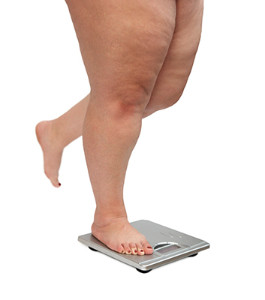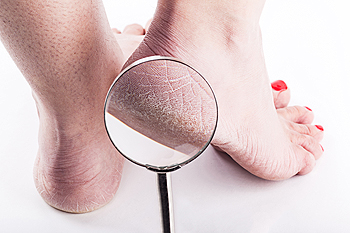Houston
Pearland
 Pins and needles is a sensation that occurs when the blood supply to the nerves is cut off. This sometimes happens if you sit or sleep in an awkward position. This feeling normally goes away if you take the weight off the affected body part, which restores the blood supply to the nerves. This sensation is common in pregnancy, and if you are experiencing it in your feet, it may be a sign of gestational diabetes which is a temporary form of the condition that develops during pregnancy. Although pins and needles during pregnancy usually isn't worrisome, you may feel a burning sensation in your feet at times. Please consider scheduling a consultation with a podiatrist for any questions or concerns regarding pins and needles felt in the feet during pregnancy.
Pins and needles is a sensation that occurs when the blood supply to the nerves is cut off. This sometimes happens if you sit or sleep in an awkward position. This feeling normally goes away if you take the weight off the affected body part, which restores the blood supply to the nerves. This sensation is common in pregnancy, and if you are experiencing it in your feet, it may be a sign of gestational diabetes which is a temporary form of the condition that develops during pregnancy. Although pins and needles during pregnancy usually isn't worrisome, you may feel a burning sensation in your feet at times. Please consider scheduling a consultation with a podiatrist for any questions or concerns regarding pins and needles felt in the feet during pregnancy.
Pregnant women with swollen feet can be treated with a variety of different methods that are readily available. For more information about other cures for swollen feet during pregnancy, consult with Dr. Linda D. Nachmani from Central Foot & Ankle Associates. Our doctor will attend to all of your foot and ankle needs.
What Foot Problems Can Arise During Pregnancy?
One problem that can occur is overpronation, which occurs when the arch of the foot flattens and tends to roll inward. This can cause pain and discomfort in your heels while you’re walking or even just standing up, trying to support your baby.
Another problem is edema, or swelling in the extremities. This often affects the feet during pregnancy but tends to occur in the later stages.
How Can I Keep My Feet Healthy During Pregnancy?
If you have any questions please feel free to contact one of our offices located in Houston, and Pearland, TX. We offer the newest diagnostic and treatment technologies for all your foot and ankle needs.
Read more about Pregnancy and Foot Health It’s important to maintain proper foot care, and added weight can result in the development of numerous foot conditions. Being overweight may limit the type of exercise that is needed for correct body care, and the feet may be negatively affected. Edema, which is often referred to as swollen ankles, is a common side effect the feet may endure as a result of extra weight. The feet will be among the many parts of the body that will be positively affected after losing weight, which can include better blood circulation and more manageable edema. Choosing shoes with maximum support, which may typically consist of a sturdy sole, can aid the foot in achieving optimum comfort. Please schedule a consultation with a podiatrist to acquire additional information of how obesity can affect the feet
It’s important to maintain proper foot care, and added weight can result in the development of numerous foot conditions. Being overweight may limit the type of exercise that is needed for correct body care, and the feet may be negatively affected. Edema, which is often referred to as swollen ankles, is a common side effect the feet may endure as a result of extra weight. The feet will be among the many parts of the body that will be positively affected after losing weight, which can include better blood circulation and more manageable edema. Choosing shoes with maximum support, which may typically consist of a sturdy sole, can aid the foot in achieving optimum comfort. Please schedule a consultation with a podiatrist to acquire additional information of how obesity can affect the feet
The more you weigh, the harder your feet must work to support your body. If you’re an obese individual and are concerned about your feet, contact Dr. Linda D. Nachmani from Central Foot & Ankle Associates. Our doctor can provide the care you need to keep you pain-free and on your feet.
Obesity and Your Feet
People who are overweight are putting more pressure on their ankles, knees, and hips as well as their feet. This unfortunately can lead to variety of different issues.
Problems & Complications Stemming from Obesity
If you have any questions, please feel free to contact one of our offices located in Houston, and Pearland, TX. We offer the newest diagnostic and treatment technologies for all your foot care needs.
Read more about How Obesity Affects Your Feet There are typically several signs that can indicate cracked heels may be a growing concern. The skin will generally become rough, and it’s suggested to observe this condition and promptly administer an appropriate moisturizer or cream. Additional symptoms may include an itchy feeling in the feet, peeling skin, or the excretion of any type of liquid, such as blood, from the heels. There are reasons why many people experience cracked heels, including certain types of medical conditions, standing for extended periods at a time, or dry skin. Research has shown that the sooner cracked heels are treated, the sooner a more comfortable feeling will return to the feet. Utilizing a pumice stone to scrub away dry skin after soaking the feet in warm, soapy water may be an effective method to ease the roughness of cracked heels. The use of coconut oil or vegetable oil may aid in obtaining relief. If you are experiencing this condition, please consult your podiatrist for additional information.
There are typically several signs that can indicate cracked heels may be a growing concern. The skin will generally become rough, and it’s suggested to observe this condition and promptly administer an appropriate moisturizer or cream. Additional symptoms may include an itchy feeling in the feet, peeling skin, or the excretion of any type of liquid, such as blood, from the heels. There are reasons why many people experience cracked heels, including certain types of medical conditions, standing for extended periods at a time, or dry skin. Research has shown that the sooner cracked heels are treated, the sooner a more comfortable feeling will return to the feet. Utilizing a pumice stone to scrub away dry skin after soaking the feet in warm, soapy water may be an effective method to ease the roughness of cracked heels. The use of coconut oil or vegetable oil may aid in obtaining relief. If you are experiencing this condition, please consult your podiatrist for additional information.
If the skin on your feet starts to crack, you may want to see a podiatrist to find treatment. If you have any concerns, contact Dr. Linda D. Nachmani from Central Foot & Ankle Associates. Our doctor can provide the care you need to keep you pain-free and on your feet.
Cracked Heels
It is important to moisturize your cracked heels in order to prevent pain, bleeding, and infection. The reason cracked heels form is because the skin on the foot is too dry to support the immense pressure placed on them. When the foot expands, the dry skin on the foot begins to split.
Ways to Help Heal Them
Ways to Prevent Cracked Heels
If you are unsure how to proceed in treating cracked heels, seek guidance from a podiatrist. Your doctor will help you with any questions or information you may need.
If you have any questions, please feel free to contact one of our offices located in Houston, and Pearland, TX. We offer the newest diagnostic and treatment technologies for all your foot care needs.
Read more about Solutions for Cracked HeelsOne form of arthritis, commonly referred to as gout, often produces severe pain and swelling in the big toe. There may be several causes of this condition, including an injury or illness that has happened or from ingesting excessive amounts of red meat and alcohol. When this occurs, uric acid in the body may produce excess crystals which lodge in the joints, and the toes are generally affected. A proper diagnosis may consist of knowing the intensity of the gout attack and learning about the patient's diet and regular medications. Additionally, an X-ray or similar may be performed to analyze the bones and soft tissues surrounding the affected toe. It’s suggested to consider scheduling a consultation with a podiatrist for the discussion of proper treatment options that may include dietary changes.
Gout is a painful condition that can be treated. If you are seeking treatment, contact Dr. Linda D. Nachmani from Central Foot & Ankle Associates. Our doctor will treat your foot and ankle needs.
What is Gout?
Gout is a form of arthritis that is characterized by sudden, severe attacks of pain, redness, and tenderness in the joints. The condition usually affects the joint at the base of the big toe. A gout attack can occur at any random time, such as the middle of the night while you are asleep.
Symptoms
Risk Factors
Prior to visiting your podiatrist to receive treatment for gout, there are a few things you should do beforehand. If you have gout you should write down your symptoms--including when they started and how often you experience them, important medical information you may have, and any questions you may have. Writing down these three things will help your podiatrist in assessing your specific situation so that he or she may provide the best route of treatment for you.
If you have any questions, please feel free to contact one of our offices located in Houston, and Pearland, TX. We offer the newest diagnostic and treatment technologies for all your foot care needs.
Read more about Everything You Need to Know About Gout